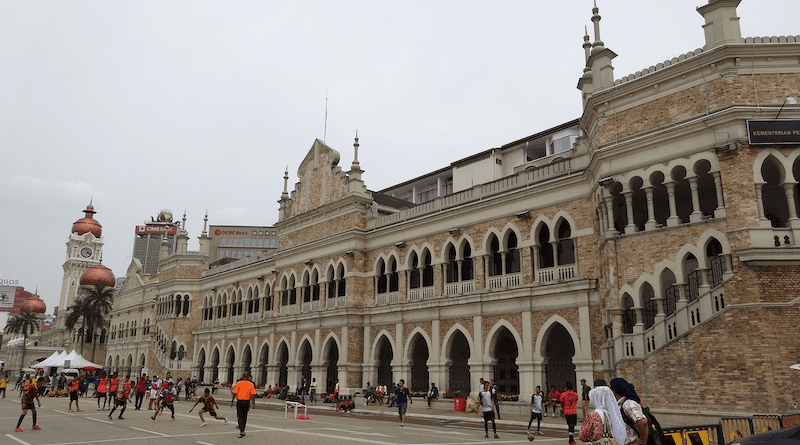Where To Malaysia? The Consequences Of A Malay State – OpEd
There are a number of signs the government of Malaysia will become Malay-centric, sharing some power with the East Malaysian states of Sabah and Sarawak. A Malay dominated government will become the natural government of the nation, due to rapidly changing demographics.
Changes in federal government administrations over the last 5 years have not essentially changed basic policies. Only the style of government is different.
So, we must expect, and even respect Malay-centric rule in the future. The demographics of Malaysia, especially the population demographics of the peninsula will soon see this come true, if it already hasn’t.
This brings up some basic question. What will this Malay state look like? What will it feel like to live within it? What will be the consequences?
Essentially, a Malay state will consolidate the trends we are already seeing. Malayization has been going over the last few decades.
The Royal households will partly regain some of the powers they had before federation. This will not be by constitutional change, but by the increase in their prestige, where the executive will allow them to reassert their respective powers as heads of state.
This will mean a more subservient executive government that would be more consultative with the Royal households. We have witnesses the role of the king change to become a major power broker in determining who will govern.
An understanding will be developed between the Ulama, Royalty, and the executive. The influence of the Ulama will increase greatly in the future, where Fatwas will become a second source of law. We are seeing this happen, where Syariah law will be placed upon a new mantle in jurisprudence.
Consequently, Malaysia will become more conservative, with semi-institutionalized Fatwa web of laws.
Malaysia’s feudal strata will become much more cemented than it is at present. There will be a consolidated elite Malay polity and their business acquaintances, a professional middle class, and then the rest of the population.
In the economy, crony capitalists as we see today, the large array of GLCs, and regulation used to create opportunities will still be the prime methods to create economic opportunities, which privileged corporations will exploit.
Life in the Malay state will be very subdued, where events and happenings must be culturally compliant, according to how the Ulama define the bounds of social diversity.
Criticism of royalty, government, and religion will be totally forbidden. Thus, any dissatisfaction with the above will only be able to be spoken about in the corners of coffee shops, where no one can overhear. There will be a heavy culture of compliance, driven by law, enforcement, and the fear of punishment.
The Consequences
Such a vision of current trends indicates what the Malay state will look like. However, this Malay state will not exist without deep consequences.
Society on the peninsula could create the conditions where Sarawakians may start to openly discuss secession from Malaysia. Sabah may follow with its own version of the Malay state, based on the fact the state has a majority of Muslims. Sabah may then become a very polarized society with minority groups.
In such a Malay state, compliance over individualization will prevail. Those with independent ideas, or alternative thoughts will be silent, or leave the country, if possible. This will not provide a comfortable environment for creativity and innovation. Most economic activities will remain rent-seeking based profiteering. Due to the feudal nature of society, meritocracy would make place for nepotism as the prime way for people to advance in their careers.
The education sector will remain as is, where the only reforms would be the further Islamization of education. There would be a further drop in the use of English as a medium, deteriorating the ability of Malaysians to communicate with those outside the country. This will hinder trade, technology acquisition, and international collaboration.
Direct foreign investment would be expected to drastically fall, as Malaysia would lose attractiveness to investors. This would make Malaysia more submissive to super powers like China, where Malaysia would be seen as a vassal state.
Finally, as a Malay state, there is always the risk that politics would become more unstable as different groups within the elite Malay polity fight each other for power. We have experienced this over the last three years of government.
The reality is that the Malay state is almost here.

